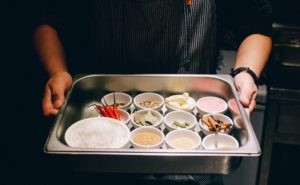
Apero, a little cafe in Quezon City, starts their day at 3 a.m. to bake breads, pickle vegetables, and churn ice cream. This is nothing new to Chef Jacq Tan. They’ve been doing the same meticulous methods with their first restaurant, Duck & Buvette, since 2014: every ingredient is prepared slowly but surely to come out with dishes that are deliciously consistent. It’s the same painstaking journey for the Grind group of restaurants. There’s a commitment to having things done a certain way—theirs.
In an age where processed, ready-made food has become part of everyday life, the idea of cooking-from-scratch is a novel, albeit tedious concept. These fast-paced times rarely have room for those who take a moment to make their own sauces, bake their own breads, and smoke their own meats. One might even say that’s what the supermarket is for.
So why do it?
The cheeky answer comes from the chefs at Apero. “Because we can,” but surely the reason for all the extra measures is much deeper.
“I think making the products from scratch is what separates you from the rest,” says Chef Thirdy Dolatre of Alley. Alley, a sandwich shop-turned-bistro located at The Grove’s Retail Row in Pasig, cures their meats and makes most of their food from scratch, including chips, sauces, ice cream.
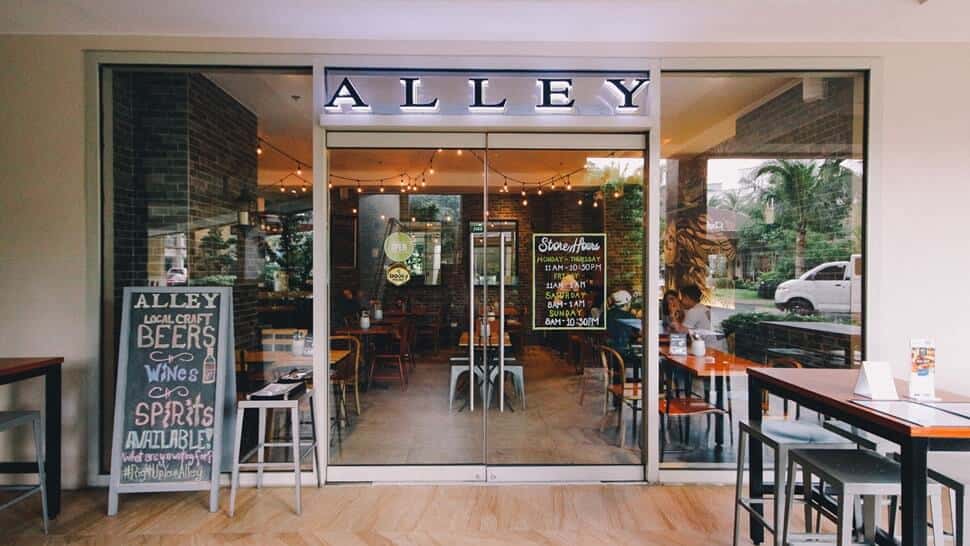
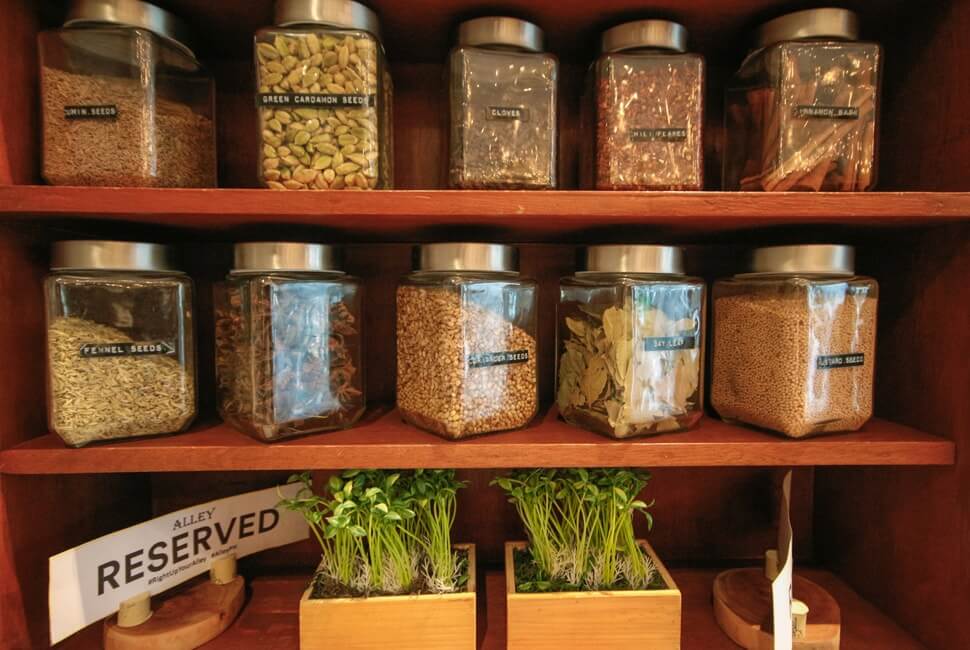
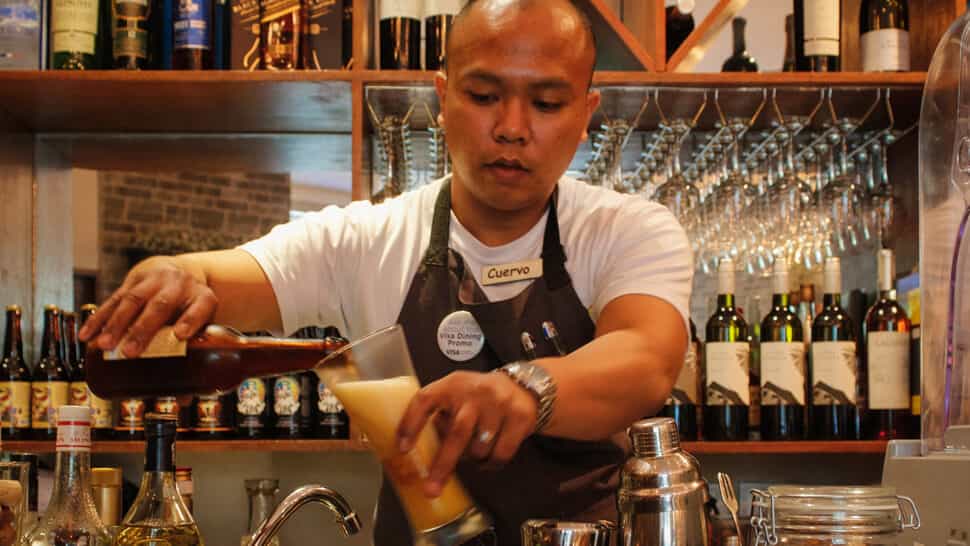
Fresh beermosas from Alley
Butz Tenchavez, co-owner of Alley, believes that serving homemade food offers the customer value for money. Customers pay a pretty peso for their food, Butz says, so the least the restaurant can do is serve them with “laborly love.”
This labor of love can also offer cooks and restaurateurs more freedom in the kitchen. “You can control the quality of your product,” says Ginny de Guzman, co-owner of Tilde Hand Craft Café in Poblacion, Makati. “You start with something good, you end up with something good.”
Tilde is concerned with the freshness of the food they serve, culling their ingredients from organic farms and markets. “It’s really true,” Ginny says. “What you eat is either your medicine or your poison.”
“You taste the difference,” Thirdy says. He’s particularly proud of Alley’s best-selling Reuben sandwich, which features home-cured corned beef, pickled slaw, and honey mustard. Beef is cured with a variety of herbs and spices, including mustard seeds, fennel, cardamom, and cinnamon. The meat is then set aside for six days before it will be slowly cooked for two more days.
“Yung effort na ginagawa namin diyan, siguro yan din yung natitikman ng customers,” the young chef says.
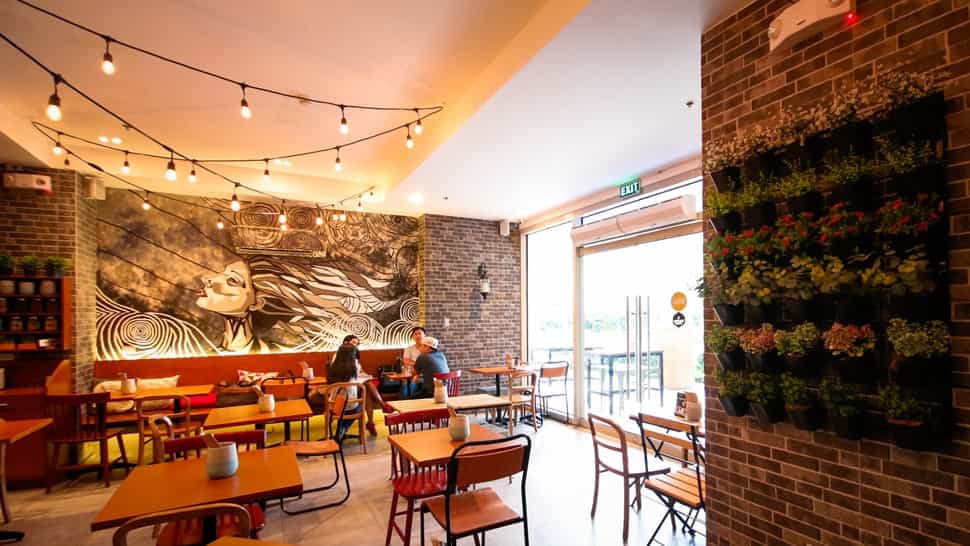
According to Ginny, Tilde’s customers find the homemade aspect of the restaurant a nice revelation, and are intrigued by the process. Most of Tilde’s food items, from the craft sodas to the dough, rely on fermentation before they’re served at the table. “In fermentation there’s a lot going on—time, temperature.” Ginny explains.
Working with live bacteria adds an unknown variable to the process. “You cannot control it one hundred percent,” she adds. “You have to be able to sanitize, to keep out the bad bacteria that you don’t want to grow. Just cultivate the bacteria that is going to be good for your food.”
Aside from the specificity of the process, there’s a bit more planning involved when making food from scratch. “It’s not as easy as buying in the supermarket,” Ginny says. “We have to go back and say, ‘okay how long does it take to make the pasta?’ And we have to try to integrate our ingredients na walang waste.”
Thirdy also adheres to a similar waste-free ideology. Alley buys their salmon whole (as opposed to simply buying fillet), and divides the meat themselves. The salmon left over from filleting will be used for a salmon sandwich.
As with all endeavors, there are limits to the creation process. While putting up a restaurant that’s 100 percent made from scratch is possible, it might not be practical. Alley stopped baking their bread in house last August, as the customers’ demand didn’t quite justify the operational expenses required. Tilde does not roast its coffee in their commissary, choosing to source instead from a supplier in Bukidnon that has export-grade 100{c766c94b6cce8a4a4cf3f583cdcabd5551de6f63a04bf67f190eec0cdd205dd8} Arabica beans.
“I think one of [Thirdy’s] mentors said that although we make things from scratch, we also buy certain things that are ready.” Butz says. “[He says] if you can’t replicate it, or if you just want to say ‘house-made’ for the sake of it, don’t even bother.”
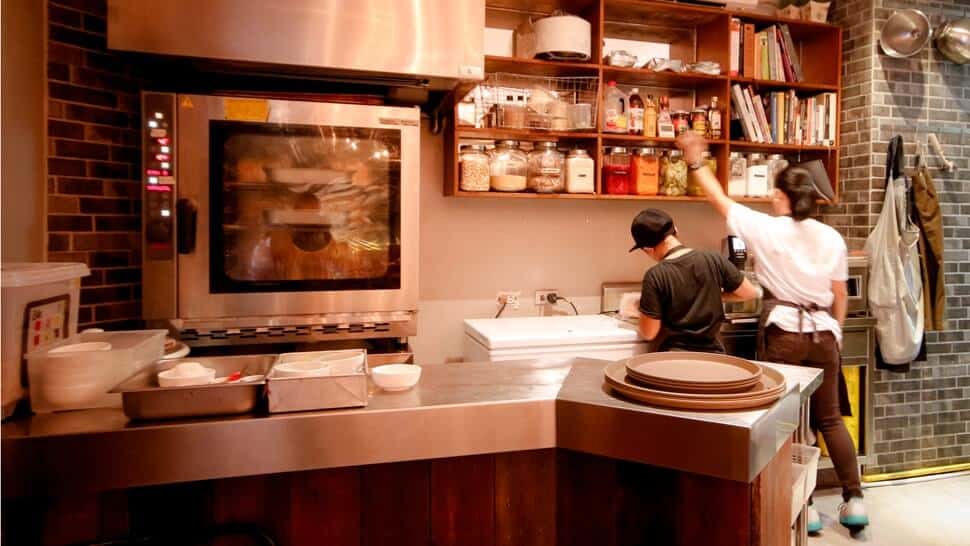
The tiny oven that once made Alley’s custom breads.
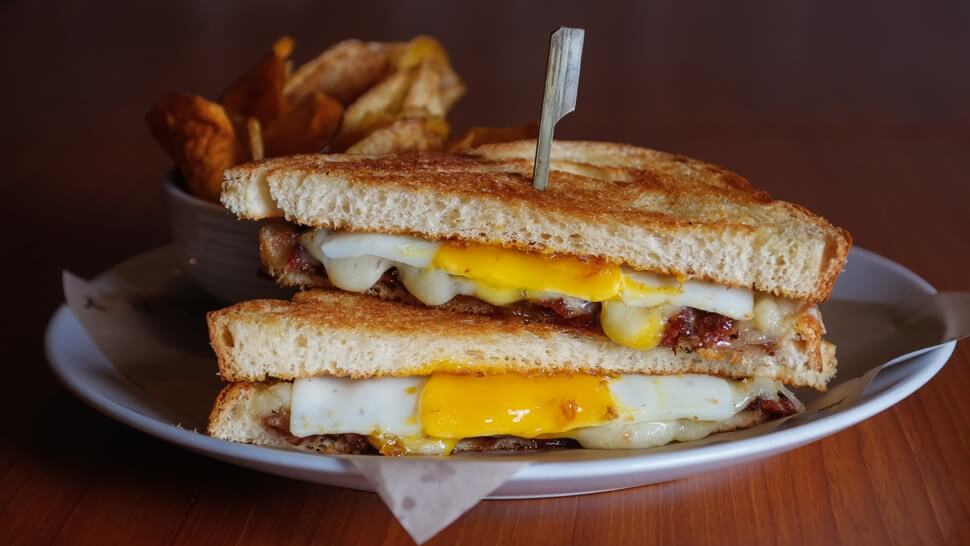
Breakfast in Bread
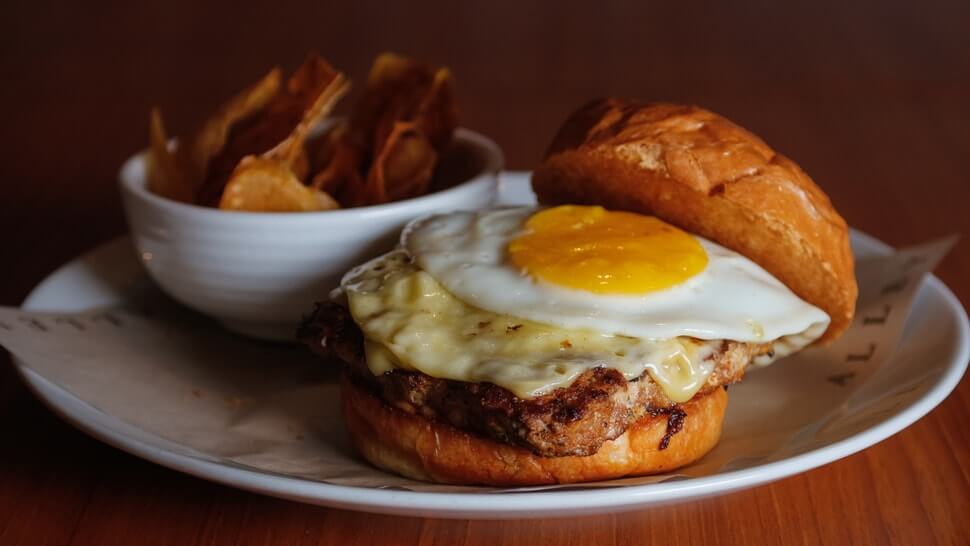
Morning Bun
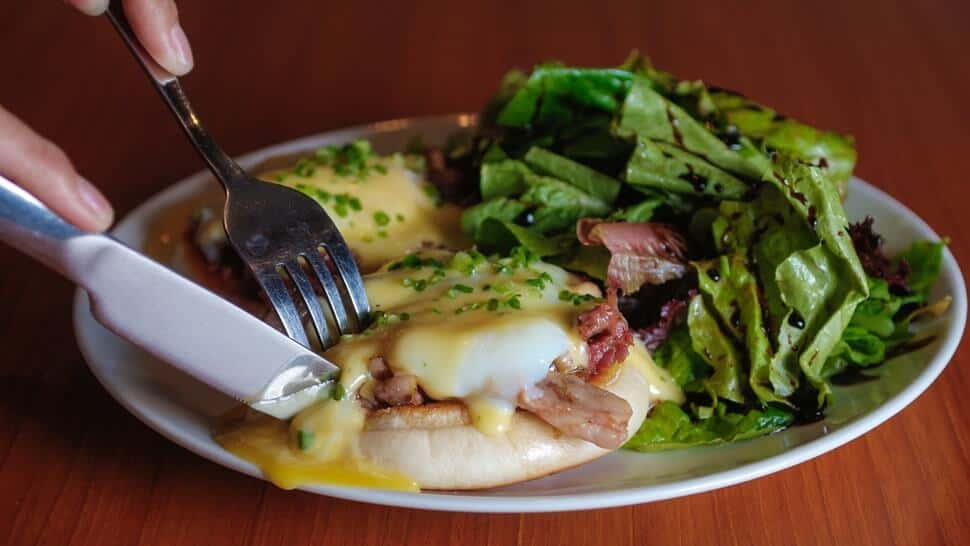
Corned Beef Benedict
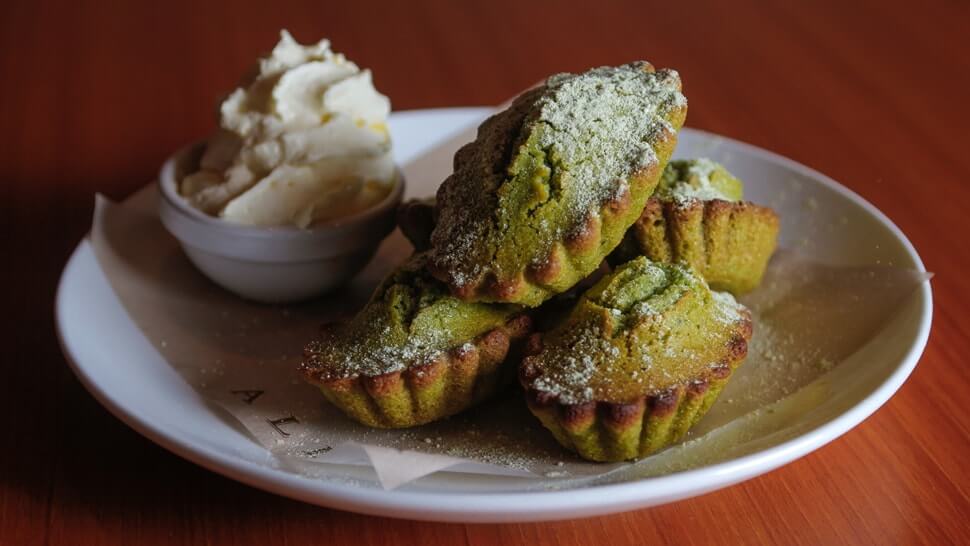
Fresh matcha financiers
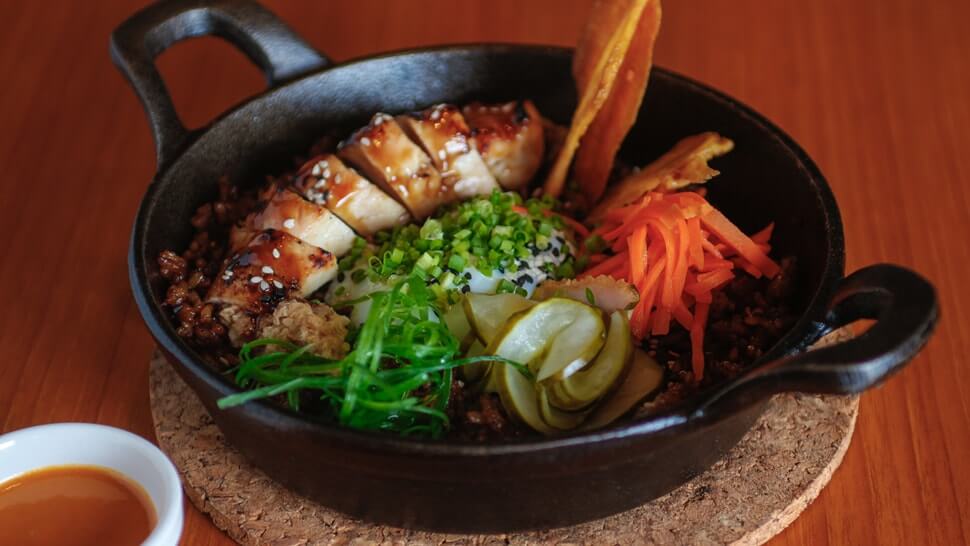
Soy Chicken Rice
Thirdy, Butz, and Ginny all have extensive F&B backgrounds. Thirdy, who learned to cook at age seven, worked as a chef in Canada before doing time in the kitchens of Wildflour. Butz is the youngest in a family of restaurateurs that run Kettle, Refinery, and Tender Bob’s, among others. Ginny has been in the restaurant business for decades, founding the well-loved bakery franchise Sugarhouse in the ’80s and is currently the co-owner of takeout delivery business Gustare Kitchen.Each of them enjoy spending time in the kitchen and experimenting with new dishes.rnrnBoth Alley’s and Tilde’s menus have undergone several revisions, with the latter setting aside a seasonal menu for newly created offerings. Inspiration can come from anything: the available produce in the market, a recipe from a well-known cookbook, or just a really good meal remembered from childhood.rnrnBeyond the uniqueness of homemade food and the benefits of starting from scratch, there lies the simple pleasure of being able to create. Chefs are naturally inclined to create something, and the ability to bring good food to the table brings a heady thrill. But to be part of the creation process even before the food hits the pan? That’s a different satisfaction
Each of them enjoy spending time in the kitchen and experimenting with new dishes.Both Alley’s and Tilde’s menus have undergone several revisions, with the latter setting aside a seasonal menu for newly created offerings. Inspiration can come from anything: the available produce in the market, a recipe from a well-known cookbook, or just a really good meal remembered from childhood.rnrnBeyond the uniqueness of homemade food and the benefits of starting from scratch, there lies the simple pleasure of being able to create. Chefs are naturally inclined to create something, and the ability to bring good food to the table brings a heady thrill. But to be part of the creation process even before the food hits the pan? That’s a different satisfaction
Both Alley’s and Tilde’s menus have undergone several revisions, with the latter setting aside a seasonal menu for newly created offerings. Inspiration can come from anything: the available produce in the market, a recipe from a well-known cookbook, or just a really good meal remembered from childhood.Beyond the uniqueness of homemade food and the benefits of starting from scratch, there lies the simple pleasure of being able to create. Chefs are naturally inclined to create something, and the ability to bring good food to the table brings a heady thrill. But to be part of the creation process even before the food hits the pan? That’s a different satisfaction
Beyond the uniqueness of homemade food and the benefits of starting from scratch, there lies the simple pleasure of being able to create. Chefs are naturally inclined to create something, and the ability to bring good food to the table brings a heady thrill. But to be part of the creation process even before the food hits the pan? That’s a different satisfaction all together.

